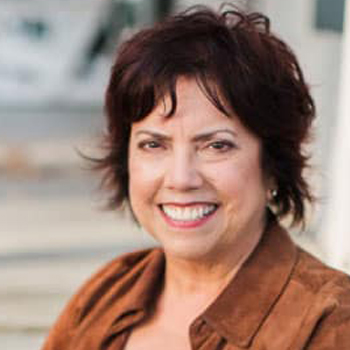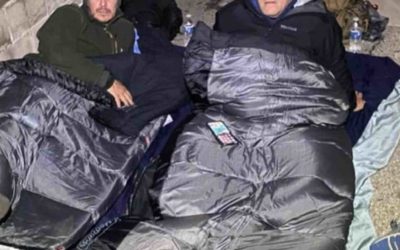~ Guest Writer Elvira G. Aletta, Ph.D. ~
Dreading the upcoming holidays?
Afraid to go to your mother’s house because you can count on Uncle Bill, in his red hat, or Cousin Debbie, who never learned to say no to her kids, or Aunt Cindy, the perpetual victim, adding to the family “fun”?
Holiday family gatherings come in roughly three different types.
. . .
The Ideal Family
Yes, they do exist. You are SO looking forward to getting together for the holidays! Your family is in love with everyone! Not only that, you all LIKE everybody! The entire family respects each other, honors good boundaries and laughs away human frailties. Let the love flow!
People who are blessed to be among those with Ideal Families are unicorns who should treasure their good fortune. Be very grateful and, please, don’t gloat as you skip happily to your idyllic Thanksgiving.
For the rest of us…
The Not-Great-But-Good-Enough Family
Basically #1 with conditions. If someone shouted in a crowded room, “Whose family is dysfunctional?” almost every hand would go up, right? I know mine would. But there are degrees of dysfunctional.
The functionally-dysfunctional family is the family where mistakes were made in child rearing, maybe even serious mistakes. There are past hurts, traumas and not-perfect communication that for the most part are resolved enough to allow a degree of forgiveness, and if forgiveness is not possible, feelings can be put aside in the spirit of getting along enough to have a reasonably good time, eat a good meal and make new happier memories.
If this is your family, Thanksgiving may be tense and stressful but it could also be tolerable, maybe even fun, with good planning.
The Toxic-No-Good-Beyond-Dysfuntional Family
When family members are so toxic, so reliably abusive, you feel defeated before you even arrive at the gathering place. This “family” is emotionally dangerous, not to be trusted. The dread is building even as you read this. Healthy avoidance may be the ticket in this case.
These are the deeply dysfunctional families, full stop. You may or may not know if you grew up in a dysfunctional family because you grew up thinking the abuse, neglect, aggression was normal. You had no other perspective. Most days of the year no one outside the family sees what goes on under the fake mask that abusers keep on.
Dysfunctional families are the ones that no matter what you do to prepare, you can always count on something emotionally horrible happening during the holidays.
In dysfunctional families, the combined traditions of petty arguments past (Mom loved you best!), the retelling of embellished hurtful tales of childhood (“Remember when Timmy wet himself in front of Santa, hahaha!”) especially when fueled by alcohol, is too much for any self-aware, sensitive person.
These people are easily avoided most of the year but when the holidays come around they gather like so many vultures because “it’s the holidays and that’s what families do.”
If we agree to go to the family gathering, we end up feeling sick because they have effectively sucked all the air and happiness out of the room. If we make plans to not include them we also feel sick because we are people-pleasers and they, and their enablers, do not hesitate to let us know how bad we are for not doing what they expect us to do. We feel miserable no matter what we do.
A word here about enablers, people who, wittingly or not, advance the toxic work of the abusers.
Look out for them, too.
They are the ones who say,
“But you HAVE to come for Thanksgiving! It’s a tradition! We always get together as a family. Do it for me. You love me, don’t you?”
Or maybe the less subtle,
“You are so selfish! If you don’t come for Thanksgiving, I guess you hate me. So I don’t want to see you for Christmas either.” Or “You know Uncle Bill had a bad childhood, he doesn’t mean to be that way.”
The enabler can be just as dangerous as the toxic relative because they can sneak in under your radar. They know what people-pleasing buttons to push and how to push them in just the right way to break your resolve. You do not want to disappoint anyone, much less your mother! What’s just one or two days anyway? But what about you? Keep in mind, it’s not about one or two days or just one dinner, it’s about keeping a promise to yourself that you would protect yourself from emotional harm. Breaking promises to ourselves leads to feeling defeated, and small. That hurts.
Between the toxic people and their enablers, how can you salvage an emotionally safe holiday for yourself?
12 TIPS
Here are 12 Tips to help put things in perspective and give yourself
permission to do the unthinkable.
1. Be honest with yourself!
Accept that they will never change. They do not see and will probably never see, that they are psychologically abusive. Resist blaming them for your messed up holidays. Once you’re honest with yourself and can say, “Yes, as much as I love them, my family is f*cked up,” you can begin to make plans to give yourself the holidays you want.
Ask yourself what are the pros and cons of spending precious holiday time with your psychologically abusive family if you put yourself, your spouse and your children in emotional ‘harm’s way’? What kind of modeling do you want to provide for your children? Discuss all the options with your trusted friend, spouse, partner, sibling.
2. Trust yourself.
It is very easy to distrust ourselves when dealing with toxic people. They have a way of presenting their twisted view of things as the only true reality. The first step to regaining control over our lives is to trust our own view of things. For example, if something they said hurt us, then they are being hurtful, not “just joking”!
3. Ask yourself what you really want.
You may be surprised by the answer. You may even decide what you want is to be with your family, warts and all. Once being with them is a choice instead of a gun-to-your-head obligation you can take responsibility.
You deserve to have whatever holiday tradition you wish. You have every right to take care of yourself; always, but maybe especially during the holidays. Do whatever brings you closer to joy and grace. How you define this is completely up to YOU. Easy to say, not so easy to do.
4. This might help: Lying is OK!
I give you permission to lie. Sadly, lying may be a necessary soul-preserving tactic. You or the kids have the flu! The car broke down! Oh, no! My awful boss is making me work over the holiday! Anything to protect you and your family. Just keep the lie simple and make sure you have a secure Cone of Confidence, i.e. that your spouse/friend is your happy co-conspirator. Use lying judiciously but absolutely use it if needed.
5. Give yourself permission to have an escape route.
Make a plan to leave the family gathering early to meet a friend for dessert, go to a movie or work in a charitable soup kitchen.
Keep the toxic people out of your house if at all possible, especially during the holidays. When you go to Grandma’s house, have your own transportation, that way you can always leave.
It’s a lot harder to ask someone else to leave your home, but you have permission to kick out anyone who is being abusive if you need to. Is asking a guest to leave rude? No, but can take a lot out of you so consider your backup which is almost always needed in dysfunctional family situations.
6. You may decide not to go to the family gathering at all.
That’s OK. Remember, you have every right to do what is right for you. If you choose to forego the family holiday dinner here’s a suggested script: “You know what? My spouse and I have decided to have a very quiet Christmas, just the kids and us.”
If you are single, make plans with your closest friends for a Friendsgiving. We all know your ‘created’ family can be more loving than your real one.
When the toxic people don’t take ‘No’ for an answer, be a broken record, repeat the same sentence over and over, variations on a theme, “Well, with everything that’s been going on we decided a little holiday with just us and the kids is what we’re going to do.” After three minutes: “Oh my goodness! Look at the time! I’ve got to go pick up Susie from her playdate! Bye!” Keep all conversations with toxic people short and sweet, or just short.
You might suggest meeting the toxic people at a restaurant a few days after the holiday, maybe at one of those all-you-can-eat brunch or dinner places. That way you could meet them there, on neutral territory, and have the option to leave as soon as you begin to feel diminished in their presence. Interestingly, being in public often reduces the power of toxic people, but not always.
If you decide to go anyway, that’s OK. Just make a plan and share it!
7. Don’t rely on alcohol to ease the pain.
You do not want to be dis-inhibited when there is even one person in the room who can hit your trigger buttons with an emotional taser. Save that awesome cabernet sauvignon for when you’re with safe people in your safe place.
8. See the humor wherever and whenever you can.
It’s OK to roll your eyes as much as you want with your eyes closed.
9. Use the buddy system.
Have a confidant close by or on speed dial; a friend, cousin, sister or niece who ‘gets it’. She may need your help to get through as much as you need hers. Come up with a safe word, a signal that says: “Meet me outside. I’m about to punch Uncle Bill in the face!” Make it a game. I once did this with my adult daughter. It really was such a relief to be able to drop my napkin and say “Oopsie!” then meet her in the basement where we could laugh or quietly scream about the insanity together instead of holding it in.
10. Do not argue with toxic people.
You will not win. It’s like trying to talk a two year old into…anything. They are ALWAYS right and you only waste your precious energy trying to convince them otherwise. If they try to engage you in a hot topic like politics, religion, why your boyfriend is a loser, you know they are pushing your buttons, looking for a reaction. This is not the time to take a stand. Do not give them the satisfaction. Change the subject and/or exit as quickly as possible.
11. Think ‘strategic retreat’, not cowardice.
If you are directly disrespected, or abused in any way, give yourself a time-out to get out of the line of fire. Quietly, firmly say, “Please don’t speak to me that way,” excuse yourself and leave. Take the dog for a walk, go to a cafe for a decaf latte, listen to soothing music, feed the ducks in the park, have a good cry. Give yourself 10-30 minutes to find your balance then rejoin the group if you feel it’s safe. If the abuse persists give yourself permission to quietly leave for good.
12. Be kind to yourself because no matter what you do, you will hurt.
This is a sad fact. When we do what we are not used to doing, even if it’s good for us, it is uncomfortable, sometimes even painful. Don’t expect to be all happy because you finally said ‘No’ to the toxic people in your life. If you do that’s great! But if you don’t, it’s important to know that this pain you are feeling is growing pain, healing pain, far different from stab-me-in-the-back pain or I-hate-myself-for-letting-them-in-again pain.
Finally, to give yourself strength and resolve, remember that you are not only taking care of yourself when you take care of yourself. You are also a prime role model for your children. They watch everything and they are sponges. You want them to see that it is healthy to protect themselves from the toxic people in their lives if they ever have to. You can give them that gift.

Elvira G. Aletta, PhD.
Elvira G. Aletta, Ph.D. is a wife, mom to two adults and one horse, psychologist and writer who lives in Western New York where it’s cool to wear a cape and tall boots every day.
Connect With Us on Social Media!
RECENT FAVES
Tips for Hitting the Road with Your Furry Friends
Part 1 of Kathlene McGovern’s 2 part series on the best and safest ways to travel with your furry friends!
I’m Just Curious
Dove Rose give us ideas on how to stay curious! Keep it Fresh in the Kitchen, on the Drive and in your Life. New ideas to keep our mind alive!
Living Unhoused for a Week: Ken Craft Takes to the Streets
Ken Craft of Hope of the Valley lives unhoused on the streets of the San Fernando Valley for 100 hours and shares the challenges, insights and struggles he faced on this journey.




